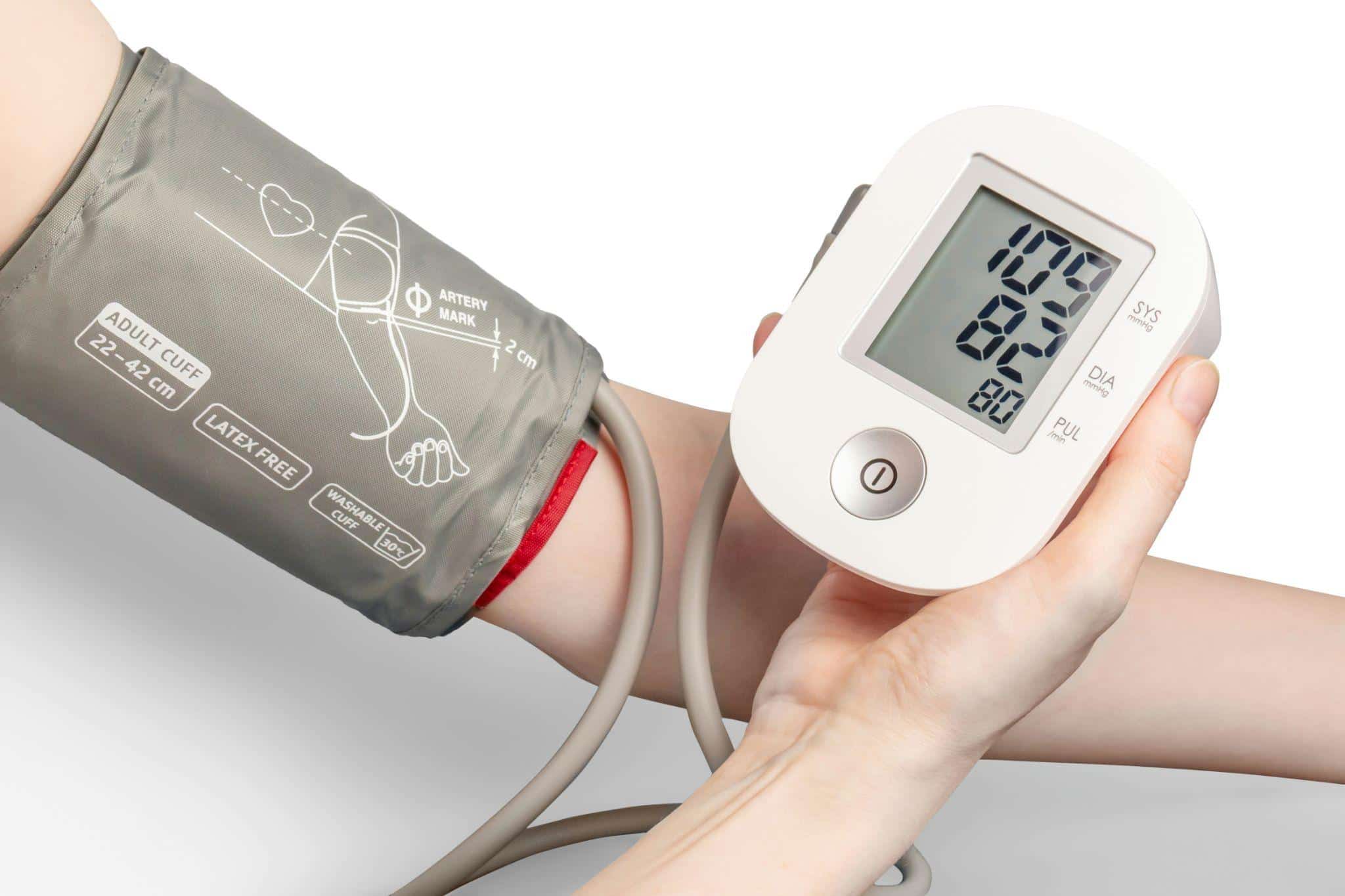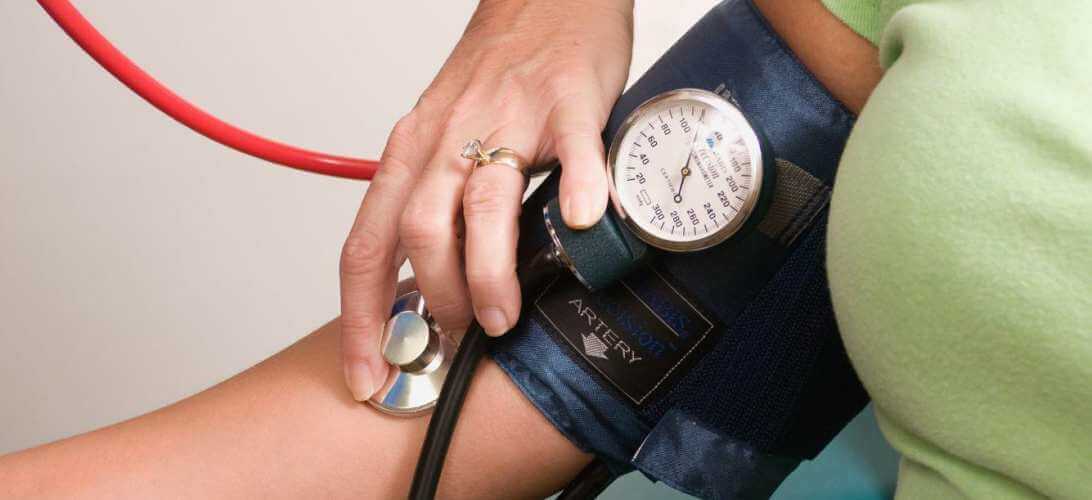Highlights:
- Spironolactone helps control high blood pressure, heart failure, and certain types of hormonal imbalances.
- Spironolactone is a potassium-sparing diuretic that decreases sodium and reduces water retention.
- Side effects are typically mild, but it’s important to balance your electrolytes while taking spironolactone.
- Like all medications, spironolactone has side effects and can interact with other medications.
- It’s important to keep your providers informed of all medications and supplements you’re taking along with spironolactone.
The key to staying healthy all comes down to balance, and hormones are at the heart of feeling your best. These chemical messengers control nearly every aspect of your body’s functions, including heart health.
For over 60 years, the potassium-sparing diuretic spironolactone has helped people control their blood pressure, reduce water retention, and correct hormone imbalances. Here’s what you need to know about spironolactone and how you can safely incorporate this drug into your treatment plan.
What is Spironolactone and What is It Used For?
Spironolactone is a well-established medication used to treat heart failure, high blood pressure, edema, and certain hormonal disorders. Developed in the late 1950s and marketed under brand names including Aldactone, its off-label uses include treating acne, hirsutism, polycystic ovary syndrome (PCOS), and hair loss in women.
How Does Spironolactone Work?
Spironolactone belongs to a class of medications known as potassium-sparing diuretics, or aldosterone antagonists. This class of drugs targets aldosterone, which is the hormone responsible for balancing fluids and electrolytes in the blood.
By blocking this hormone, spironolactone reduces sodium, relieves swelling and water retention, and prevents too much potassium from being lost. Ultimately, this action lowers blood pressure and reduces strain on the heart.

Spironolactone Dosage and Administration
Spironolactone is generally taken by mouth in tablet form, once or twice per day. This medication can be taken for short courses or used as a long-term treatment.
The dosage and treatment plan depends on your age, health needs, and the condition being treated. For example, people taking spironolactone for PCOS, acne, or hirsutism typically take lower doses than people who use spironolactone to treat high blood pressure.
Note that the dosage regimens above are general guidelines; only a healthcare provider can determine the appropriate dosage for an individual.
How Should I Take Spironolactone?
Take spironolactone only as your doctor prescribes. This medication can be taken with or without food, but it’s important to stay hydrated and avoid excessive salt intake. Follow a consistent schedule to keep this medication working effectively. Don’t suddenly stop taking spironolactone, because this can lead to a spike in blood pressure or worsen heart failure symptoms.
What Are the Potential Side Effects of Spironolactone?
Like all medications, spironolactone may have side effects. Not everyone experiences the same side effects, and this list is not complete. Speak to your doctor about spironolactone and all symptoms you experience to balance the benefits and side effects of this medication.
Common Side Effects of Spironolactone
- Dizziness or lightheadedness
- Headache
- Nausea
- Diarrhea or constipation
- Stomach cramps
- Breast tenderness or enlargement
- Irregular menstruation
- Fatigue
Less Common But More Serious Side Effects
- Electrolyte imbalances, especially high potassium or low sodium levels
- Allergic reactions, including facial swelling and rash
- Worsening kidney problems
- Liver dysfunction
- Severe stomach pain or intestinal bleeding
- Dehydration
- Hypotension (low blood pressure)
- Breathlessness or difficulty breathing

What Should I Avoid When Taking Spironolactone?
Spironolactone affects the amount of electrolytes and fluids in your blood, so it’s important to follow a healthy diet that supports your treatment plan. Specifically, be careful to keep potassium levels under control, since too much potassium can lead to hyperkalemia and impact heart rhythms.
Follow these dietary precautions while taking spironolactone:
- Avoid potassium supplements and salt substitutes that contain potassium
- Limit high-potassium foods like bananas and oranges
- Limit or avoid alcohol, because this can increase side effects
- Avoid black licorice and licorice root extract, because its ingredients can interact with spironolactone’s effects
- Do not attempt rapid weight-loss techniques, because these can lead to dehydration and electrolyte imbalances
Additionally, you should avoid driving or operating heavy machinery until you know how this medication affects you.
What Should I Do If I Miss a Dose of Spironolactone?
This medication impacts your body’s fluid balance, so it’s important to take your medication on a routine schedule. If you miss a dose, take it as soon as you remember. If it’s close to the time for your next dose, skip the missed dose and resume your usual dosing schedule. Do not double up to make up for a missed dose.

What Precautions Should I Take with Spironolactone?
Before taking this medication, speak to your doctor about spironolactone’s effects and follow these special precautions:
- Allergy overview. Tell your doctor or pharmacist about any allergies you have to spironolactone or its ingredients.
- Medication review. Talk to your doctor about all prescriptions, nonprescription medications, vitamins, supplements, and herbal products you’re taking. Be sure to mention any ACE inhibitors, ARBs, aspirin, NSAIDs, diuretics, blood pressure medications, lithium, narcotics, or potassium supplements.
- Discuss health history. Spironolactone may not be appropriate for people with Addison’s disease, high potassium levels, kidney disease, or liver disease.
- Pregnancy or breastfeeding. The safety of taking spironolactone while pregnant or breastfeeding is unclear. Inform your doctor right away if you become pregnant while taking this medication.
- Discuss upcoming surgeries. Spironolactone can affect blood pressure levels and increase bleeding risks.
- Understand spironolactone’s effects. Be aware that spironolactone may cause side effects that may be severe, including electrolyte imbalances and dehydration. High potassium may lead to dangerous changes in heart rhythm.
- Be cautious with alcohol. Alcohol can worsen spironolactone’s side effects like dizziness and lightheadedness, especially when rising from a lying position.
Contraindications of Spironolactone
Spironolactone is not for everyone. Some people should not take spironolactone and others should use it with caution under close medical supervision.
Keep in mind that these lists are general guidelines. In special cases, doctors may feel the benefits of taking a particular medication outweigh the risks, so if you are in one of these groups, talk to your doctor about your personal situation.
Who Should Not Take Spironolactone?
- People with kidney failure, especially those with anuria (the inability to urinate)
- People with high potassium
- People with Addison’s disease, which affects the adrenal glands
- Anyone allergic to spironolactone or any of its ingredients
Who Should Take Spironolactone With Caution?
- People with mild to moderate kidney disease
- Individuals with liver disease, including cirrhosis of the liver
- Patients with diabetes, since spironolactone may affect blood sugar levels
- Elderly patients, as they may be more susceptible to spironolactone’s side effects
- People taking NSAIDs, ACE inhibitors, ARBs, or potassium-sparing diuretics
- Pregnant or breastfeeding women

Are There Any Other Potential Drug Interactions With Spironolactone?
According to Drugs.com, a total of 377 drugs and supplements can interact with this medication. Of these, 51 are considered major.
The most important potential drug interactions to be aware of include medications and supplements that promote potassium retention, as these may lead to hyperkalemia:
- Angiotensin-converting enzyme (ACE) inhibitors
- Angiotensin II receptor blockers (ARBs)
- Potassium-sparing diuretics
- Potassium supplements
Other medications, including immunosuppressants, lithium, narcotics, muscle relaxers, antidiarrheals, and certain antibiotics may also interfere with spironolactone.
For the complete known interactions list, visit the Drugs.com Drug Interactions Checker. However, no list of potential drug interactions is complete, so let your provider know if you experience any new or unusual symptoms after taking this medication.
Spironolactone Can Help You Find Your Balance
Spironolactone may have many uses ranging from blood pressure control to balancing hormones, but it isn’t for everyone. Like other drugs, this medication may have side effects, so it’s important to understand its effects and potential interactions. The key is to follow your doctor’s recommendations and watch your diet while taking this medication.
If you’re taking spironolactone or another potassium-sparing diuretic as part of your treatment plan, BidRx can help you find the best deal for your medications.
Get the Lowest Price for Spironolactone With BidRx
If your doctor has prescribed spironolactone to help manage heart health or keep hormones in check, you can find the best price with BidRx. Let pharmacies compete for your business, then choose the offer that fits your budget. Sign up for a free account and get started today!
This information is intended for general informational purposes only. It is not a substitute for professional medical advice, diagnosis, or treatment. Always seek the advice of your physician or other qualified health provider with any questions you may have regarding a medical condition or medication.
